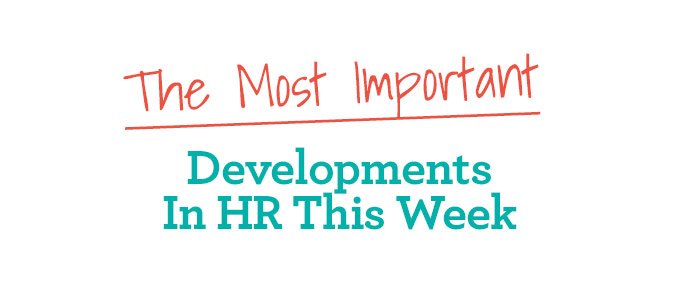
The conventional wisdom on retraining older workers is rather bleak: They’re too old or set in their ways to learn new things or update their job skills. Sorry, conventional wisdom, but we (and the Harvard Business Review) think that’s dead wrong. Investment in skills development is “front loaded” in a person’s first 25 years, and then tends to drop off. But today, perhaps more than ever before, that’s a mistake. The very nature of work is undergoing a dramatic shift, and we all have to shift along with it. Lightning-fast technological evolution, AI, globalization — it’s all changing the nature and future of work and the skills needed to do that work. Companies need to reskill their workers, and not just the younger ones, to get a solid foothold on these shifting sands. HBR


Employees at Facebook and Google will no longer be forced to give up their right to sue if they face harassment or discrimination, a key demand of the Google employees that staged a walkout last week. It’s significant because these two titans of Silicon Valley have been famously secretive about their policies and other internal workings. So why the public declarations? Speculation is that it’s at least partially about brand. Google’s stellar reputation for having an enlightened, feel-good workplace was tarnished in the wake of 17,000 employees demanding change. Competition for the best and brightest in Silicon Valley is fierce, and those talented techies don’t want to work for a company that isn’t serious about sexual harassment. Hence the public announcement from Google. No surprise that Facebook, which competes with Google for the best people, announced its new policy 24 hours later. Inc.


A big problem when attempting to tell if competition has weakened is that experts have stopped trying to answer the question. In the 1930s industrial economists viewed an uncompetitive industry as one in which a few firms had a large share of output and prices were high or quality low. Roll forward 80 years and competition regulators take refuge behind legal definitions of types of misconduct, such as price-fixing. If you ask them whether economy-wide dynamism has ebbed, they often insist that there are no analytical concepts or satisfactory data that allow that question to be answered, rather like medieval geographers who refuse to consider any evidence that the world is round unless it is written by members of the church in ecclesiastical Latin. The Economist


“I love our open plan office!” said nobody, ever. The recent trend toward one big room with no partitions, dreamed up by someone who thought it might break down barriers, improve communication, and build a lighter company culture, has backfired, according to a new survey by YouGov. Surprising no one, it turns out people feel spied upon, distracted, and distressed in open plan offices. They put on headphones and tune out, communication suffers, and the need to look busy all the time stresses people to the max. Open plan offices are soul-crushing to introverts, result in 70 percent more sick days than traditional offices, and here’s a fun fact: They cause the body to constantly produce the stress hormone cortisol, which can lead to chronic disease. HR: Just say no to open plan offices if the idea comes up. If you’re in one, advocate for change. Bloomberg


In a few words, because they can. It’s easy for employees to hop on LinkedIn and Indeed at lunchtime, and the jobs are out there waiting for them. According to the Bureau of Labor Statistics, more people voluntarily left their jobs this year than they have since 2001. Reasons other than the job seeker’s market include compensation, lack of growth at their current positions, and work-life balance. A new survey by Jobvite tells us 30 percent of the people who left their jobs voluntarily did so within 90 days of starting. (That’s outrageous and a costly headache for HR!) Why are they jumping ship so fast? The job wasn’t what they thought it would be or the culture fit was off. Attracting and retaining good people is crucial to the bottom line, and HR is in a great position to align with that vital corporate goal. A solid interview and onboarding process is critical (new employees need to know exactly what they’re getting into), compensation needs to be competitive, and opportunities for growth must be mapped out if you want to attract and retain great employees. Forbes


Walmart’s new scheduling app is so slick, useful, and easy we’re not sure why more companies aren’t using something similar. (They probably will be soon.) It’s designed to make employees’ schedules both predictable and flexible, seemingly contrary things, but somehow it works. The app allows employees to see their schedules, swap shifts with coworkers, select unfilled shifts to work, and adjust shifts if their plans change. They can also select the same shift for 13 weeks, eliminating the scramble of trying to find childcare or transportation because of a last-minute schedule change. Managers say not having to hassle with those things saves them eight hours a week — a whole workday! Another home run for Walmart, which has been focusing on the employee experience this year with stellar results. HR Dive










